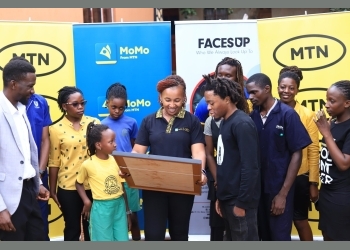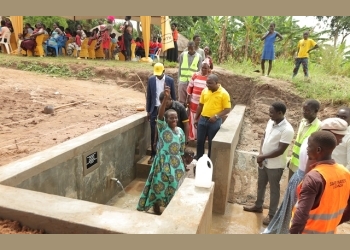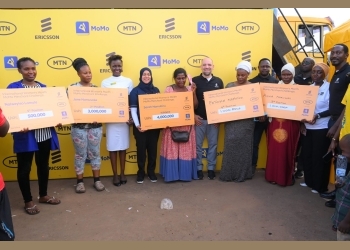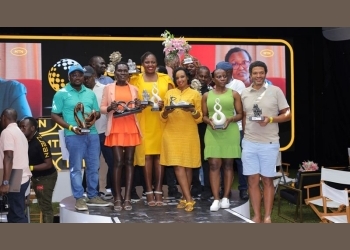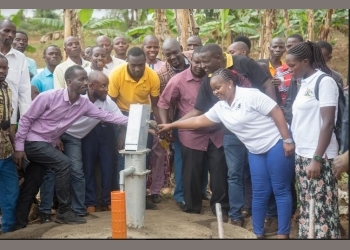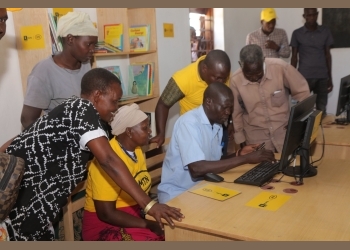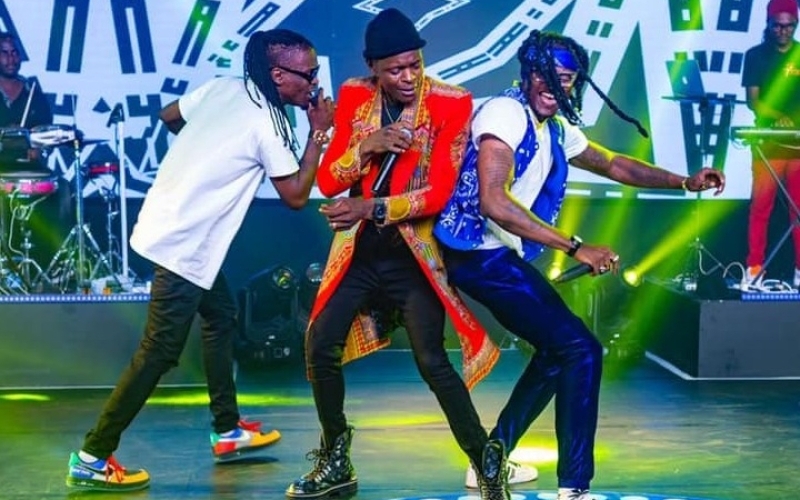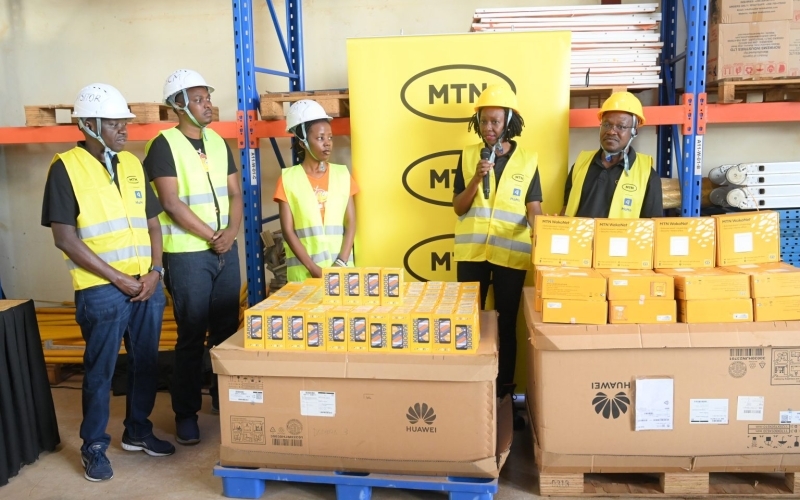
MTN Uganda, in a remarkable step towards environmental responsibility and youth empowerment, has today donated 379 electronic items valued at Shs 65 million to Fundi Bots, an organization dedicated to Science, Technology, Engineering, and Mathematics (STEM) and robotics training.
The donation includes 258 Smartphones M671, 39 ZTE Windows LTE Cat6, 41 KAIOS device mobile phones, 6 KVM Machines and server racks, 31 Server and Access points, 2 Avaya servers, and 2 Transmission cabinets.
Fundi Bots focuses on STEM and Robotics training, offering extra-curricular learning experiences that extend beyond classroom lessons. Their programs provide skills-based learning outcomes that prepare students for life beyond school.
Abel Kibiryango, the Senior Manager IT Infrastructure at MTN Uganda said the donated electronic items will play a significant role in enhancing electronics repair, reuse, and robotics programs in primary and secondary schools.
“This initiative underscores MTN Foundation’s commitment not only as an enabler of Environmental Social Governance (ESG) but also as a driver of value for the youth through hands-on training in robotics, coding, and project-based learning,” he said.
“We, at MTN Uganda, firmly believe that our growth and success should go hand in hand with protecting our environment for the safety and health of our future generations.”
Kibiryango said MTN Uganda’s initiative on e-waste management aligns with the United Nations’ Sustainable Development Goals (SDGs), specifically contributing to Goal 3 (Good health and Well-being), Goal 6 (Clean water and Sanitation), Goal 11 (Sustainable Cities and Communities), Goal 12 (Responsible Consumption and Production), Goal 14 (Life Below Water), and Goal 8 (Decent Work and Economic Growth).
Over the recent years, Uganda has witnessed a surge in the importation of ICT-based electrical and electronics equipment (EEE) due to the elimination of trade barriers, liberalization of the telecommunication sector in 2006, and the implementation of e-initiatives to enhance service delivery.
However, this has also come up with numerous challenges including increased turnover of ICT equipment and devices that has led to a significant rise in e-waste generation, emerging as one of the fastest-growing solid waste categories globally.
However, this surge has brought about challenges, including the increased turnover of ICT equipment and devices, leading to a substantial rise in e-waste generation—a rapidly growing solid waste category globally.
With mobile phones having a lifespan of 5 months to 2 years and larger appliances lasting 5 to 10 years, effective electronic waste management has become a crucial challenge for Uganda.
In response to this, the Uganda Communications Commission (UCC) conducted a comprehensive collaborative study from 2019 to 2020 on the end-of-life (EoL) management of ICT equipment. The study projected an average of 4.5 kilo tons of end-user ICT devices each year from 2018 to 2022.
Notable study recommendations included the incorporation of sustainable strategies into the national regulatory framework, the establishment of a permanent collaboration mechanism for EoL management, and the development of strategies to attract Public Private Partnerships (PPP) in sustainable e-waste management.
Solomon King Benge, the ounder and Executive Director at Fundi Bots expressed gratitude for the partnership with MTN Foundation, emphasizing the positive impact on STEM education and youth development.
“Fundi Bots is honored today to receive a donation of technology tools and resources from MTN Uganda. This donation will go a long way towards our work in accelerating science education and building technical skills for Africa’s children and youth,” he said.
“As a fast-growing organization, our demand for technology and technical resources is constantly evolving and we are deeply grateful when partners like MTN recognize that need and offer targeted support. We look forward to building Africa’s future together.”
MTN Uganda has consistently demonstrated commitment to environmental sustainability through various initiatives, including aligning infrastructure and operations with UN Sustainable Development Goals, embracing paperless transactions, and integrating solar energy in network sites for environmental conservation.
Last year, MTN Uganda donated e-waste worth Shs 20 million to Makerere University College of Engineering, Design, Art and Technology for recycling, reuse and responsible disposal.
The donation amounting to 390 items weighing 1,831.5kgs included 166 monitors, 134 desktops, and 90 laptops to be revamped and donated to rural secondary schools to enhance ICT access and literacy.


